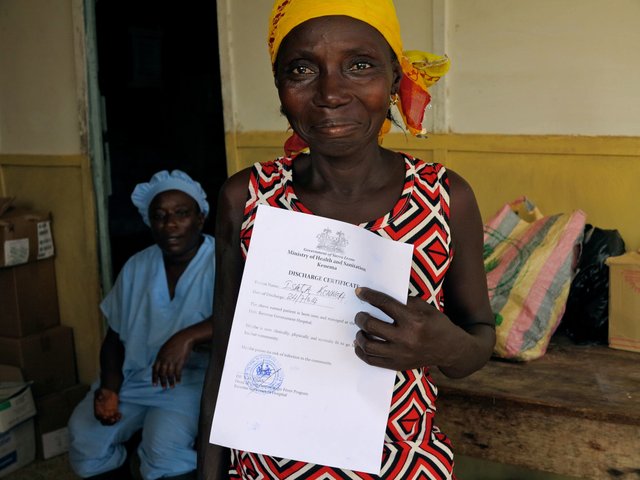Ebola survivors sue government of Sierra Leone over missing millions

Two Ebola survivors are to sue the government of Sierra Leone in the first international court case intended to throw light on what happened to some of the millions of dollars siphoned off from funding to help fight the disease.
The case, filed with the regional west African court in Nigeria, alleges that a lack of government accountability allowed the disappearance of almost a third of the money that came into the country during the early months of the Ebola outbreak in 2014. It claims that this led to violations of survivors’ rights to health and life.
An audit of the first six months of the outbreak showed that more than $15m (£11m) worth of resources donated to the government went unaccounted for – more than 30% of what came into the country over that period.
Lara Taylor-Pearce, Sierra Leone’s auditor general, said in an interview with the Africa Research Institute that she felt justice was needed for Sierra Leoneans over the missing millions: “For serious breaches of financial management procedure I would support forcing the individuals responsible to pay back the money. It would send a strong message. But currently this does not happen. People continue to get away with transgressions.”
Sierra Leone recorded more than 14,000 cases of Ebola in two years, and about 250 health workers died. Officials promised survivors free healthcare and a small financial package, while surviving heath workers were told they would receive up to $5,000.
But the president of the Sierra Leone Association for Ebola Survivors, Yusuf Kabbah, said those vows were broken. “When we were admitted to the treatment centres they burned all our clothes as a means to fight the virus, promising money for new ones. They promised us that after everything they would provide three things: livelihood, healthcare, and psychosocial support,” he said. “Now our members are dying because they don’t have any of those things.”
After a slow international response, especially from the World Health Organization, foreign donors and governments eventually poured millions into Sierra Leone to combat the outbreak, which claimed nearly 11,000 lives in three countries over the course of 2014 and 2015.
The Red Cross admitted in November that about $5m of their Ebola relief funding was lost to misappropriation across the infected countries of Sierra Leone, Guinea and Liberia before the outbreak was declared over in 2015.
Kabbah said that there is more than enough physical evidence to support the claims made by survivors, but that international attention is needed to ensure the government takes the case seriously. Some critics worry that, even should a ruling be made in favour of the Ebola survivors, government officials could simply choose not to recognise the decision.
“We need the international community’s tireless attention, because otherwise everything’s left with the government,” Kabbah said. “Then it will be an issue of justice denied. But if we get everyone’s attention, we get their support, we know justice will prevail. The truth is on our side.”